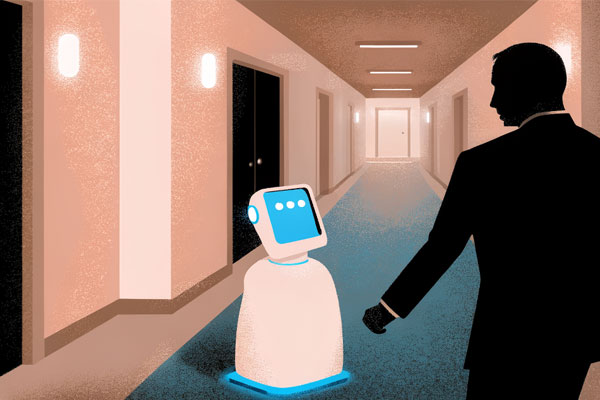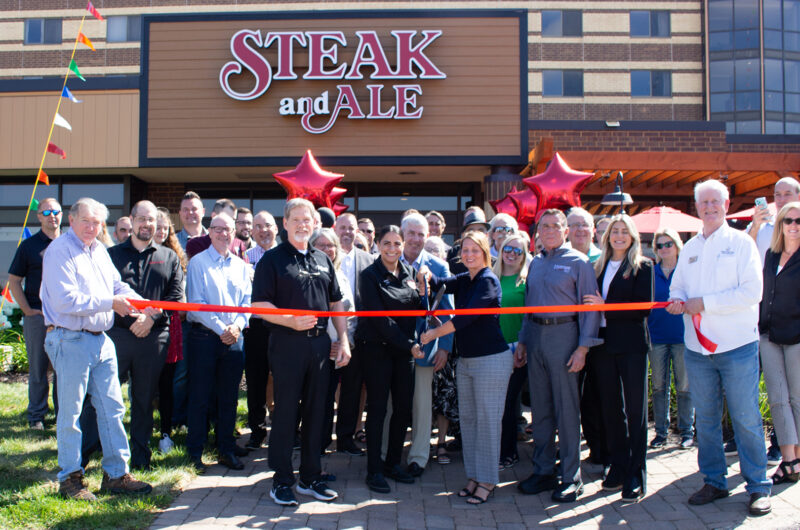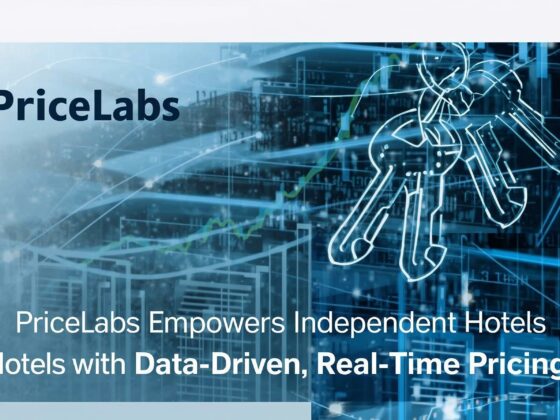
Today’s hospitality leaders are navigating an increasingly complex landscape shaped by rising costs, evolving guest expectations and a demand for more sustainable, personalized and efficient operations. The good news? Emerging technologies, particularly artificial intelligence, are equipping hotels with the tools to meet these demands head-on, offering smart solutions that benefit staff, operations and guests alike.
Thanks to rapid advances in AI and IoT, hotels are no longer just service providers; they’re becoming platforms for hyper-personalized, wellness-centric and immersive experiences. From intelligent energy management to location-aware safety systems, technology is allowing lodging companies to reimagine what efficiency and guest satisfaction look like in 2025.
Smarter hotel management
While AI already powers many smart hotel tools, much of its potential remains untapped due to the fragmented and siloed nature of these systems. That’s changing with the rise of unified, cloud-based AI platforms, which consolidate data from across the property into a single intelligent layer.
Hotels generate vast amounts of data every day: guest preferences, room occupancy, energy use, staff activity and more. By centralizing this data, hotels can unlock predictive insights that power proactive decision-making — from optimizing resource usage to anticipating guest needs before they’re expressed. This shift supports not just operational excellence, but also trend-driven offerings like wellness customization and regenerative sustainability initiatives.
Sustainability, an operational advantage
Sustainability has shifted from a brand differentiator to a business imperative. Guests increasingly expect hotels to demonstrate real, measurable commitments to environmental responsibility, yet many sustainability efforts still rely on outdated controls or manual processes.
AI is helping shift that paradigm. Intelligent HVAC systems, for instance, can learn the thermal patterns of each room and adjust energy use accordingly, reducing waste without compromising comfort. In water management, AI can analyze sensor data to distinguish between normal usage and anomalies, flagging potential leaks before they escalate.
This level of automation and adaptability not only supports sustainability goals but also helps lower operating costs and reduce risk.
Asset management and staff safety
Operational efficiency also means taking better care of both physical assets and people. Luggage carts, cribs, and other guest-requested amenities are frequently misplaced, leading to service delays and safety hazards. AI-driven asset tracking solutions eliminate this friction by monitoring locations in real time, reducing search times and improving availability.
Staff benefit, too. AI-integrated badges with location awareness now double as panic buttons. With one tap, employees can alert the front desk or security, and the AI system immediately communicates their location, improving response times and boosting workplace safety.
Operational efficiency = guest satisfaction
While guests increasingly appreciate personalized touches, like having their preferred room temperature set before arrival, the ability to consistently deliver these experiences depends on seamless integration behind the scenes. This goes beyond traditional guest data management and requires real-time operational intelligence that connects property systems with service delivery.
By unifying data from thermostats, occupancy sensors and property management platforms, hotels can automate and optimize room settings based on guest profiles, improving comfort without adding manual workload. This kind of practical personalization is a clear example of how operational efficiency and guest satisfaction intersect, helping hotels run smoothly while meeting rising expectations.
A predictive, people-centered future
As automation, personalization and sustainability converge, AI has emerged as a unifying engine behind the most forward-thinking hospitality strategies. Hotels that embrace intelligent, integrated platforms will not only optimize operations but elevate the guest experience in lasting, meaningful ways.
With AI, hoteliers can shift from reactive service to predictive hospitality — delivering the comfort, authenticity, and seamlessness that today’s travelers expect, while creating the operational agility and resource efficiency needed to thrive in a rapidly evolving market.
Story contributed by Ian Lerner, CEO, Anacove. Anacove provides managed services for hotels to deliver energy savings and staff efficiency.





